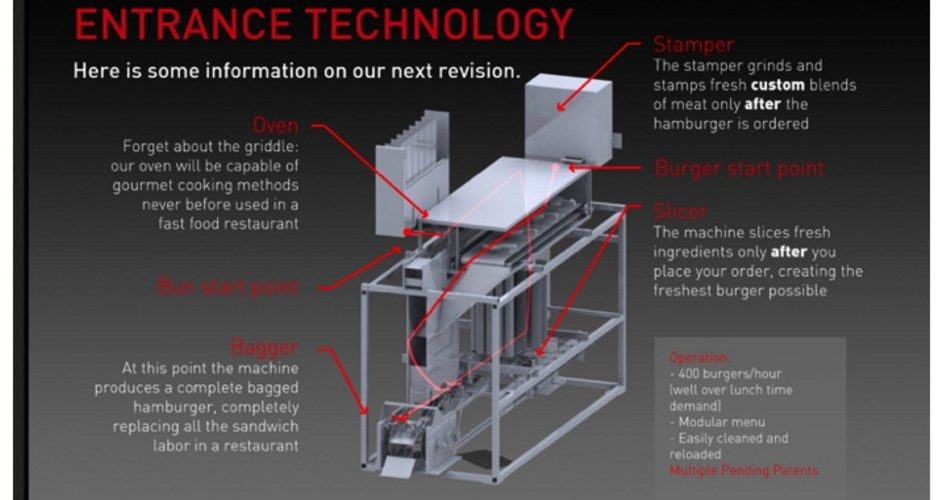
The city of SeaTac, which holds the Seattle-Tacoma International Airport, raised the minimum wage to $15 an hour starting January 1 for some businesses. Within weeks of the beginning of the SeaTac “experiment,” the impact of the passage of Proposition One had become evident. Despite the fact that the new law impacts only about 1,600 employees in this town of 27,000, major changes and shifts were already taking place in reaction to it.
For example, a customer using the Master Park Airport valet parking service at SeaTac will note an extra line on his bill for $.50 entitled “living-wage surcharge.” In December the 215-room Clarion Hotel closed its full-service restaurant, laying off 15 people. The hotel also terminated the employment of a night desk clerk and a maintenance employee, and according to general manager Harry Wall, the hotel was considering a 10-percent increase in room rates just in time for spring visitors. Wall said that without this reduction in workforce, the hotel’s annual payroll costs would have increased by $300,000 thanks to the new minimum-wage law.
WallyPark, an airport parking services that employs about 80 people at three different locations in SeaTac, is being flooded with applications from people outside the city looking to take advantage of the new law, claimed Homer Ignacio, the assistant manager. As these new applicants are interviewed, Ignacio will be faced with the prospect of being able to hire more highly skilled workers and pay them what he is paying some of his current less-skilled employees. Those present employees face the threat of having their jobs being taken away by a new employee.
Other adjustments are being made as the new law takes effect. According to Gary Smith, a spokesman for the opposition group Common Sense SeaTac, “a number of businesses made sure they fit the small business category [and were therefore exempt from the new law], even if they had to make adjustments to do that.” Those adjustments no doubt included reducing workforce numbers.
Perhaps the most telling anecdote comes from Assunta Ng who stayed at a SeaTac hotel last May:
While attending an event at a SeaTac hotel last week, I met two women who received the $15 per hour minimum wage. SeaTac has implemented the new law on January 1. I met the women while they were working. One was a waitress and the other was cleaning the hallway.
“Are you happy with a $15 wage?” I asked the full-time cleaning lady.
“It sounds good, but it’s not good,” the woman said.
“Why?” I asked.
“I lost my 401(k), my health insurance, my paid holiday and my vacation,” she responded. “No more free food,” she added.
The hotel used to feed her. Now, she has to bring her own food. Also, no overtime, she said. She used to work extra hours and receive overtime pay.
What else? I asked. “I have to pay for parking,” she said.
I then asked the part-time waitress, who was part of the catering staff.
“Yes, I’ve got $15 an hour, but all my tips are now much less,” she said. Before the new wage law was implemented, her hourly wage was $7. But her tips added to more than $15 an hour. Yes, she used to receive free food and parking. Now, she has to bring her own food and pay for parking.
All of this confirms the conclusion arrived at by James Sherk in his study for the Heritage Foundation enitled “Higher Fast Food Wages: Higher Fast Food Prices.” Wrote Sherk:
Raising the minimum wage in the fast food industry to $15 an hour would hurt consumers and workers. Without major operational changes, fast food restaurants would have to raise prices by 38% while seeing their profits fall by 77%.
This would cause many restaurants to close and many others to make extensive use of laborsaving technology — eliminating many of the entry-level jobs [they now provide].
Some of that laborsaving technology is already being installed at trial locations by McDonald’s, including self-ordering kiosks and iPhone apps that eliminate counter workers. In addition, one California company is developing a robot that makes up to 360 hamburgers in an hour without any human intervention. Such robots, it needn’t be noted, don’t call in sick, always arrive on time, don’t require vacations nor do they clamor for higher wages.
All of which proves once again the unintended consequences of governmental meddling in the marketplace. Minimum-wage laws are claimed to raise the standard of living of low-paid workers. Instead, they put them out of work altogether.
Layout of automatic hamburger grill: Momentum Machines
A graduate of Cornell University and a former investment advisor, Bob is a regular contributor to The New American magazine and blogs frequently at www.LightFromTheRight.com, primarily on economics and politics. He can be reached at [email protected].



